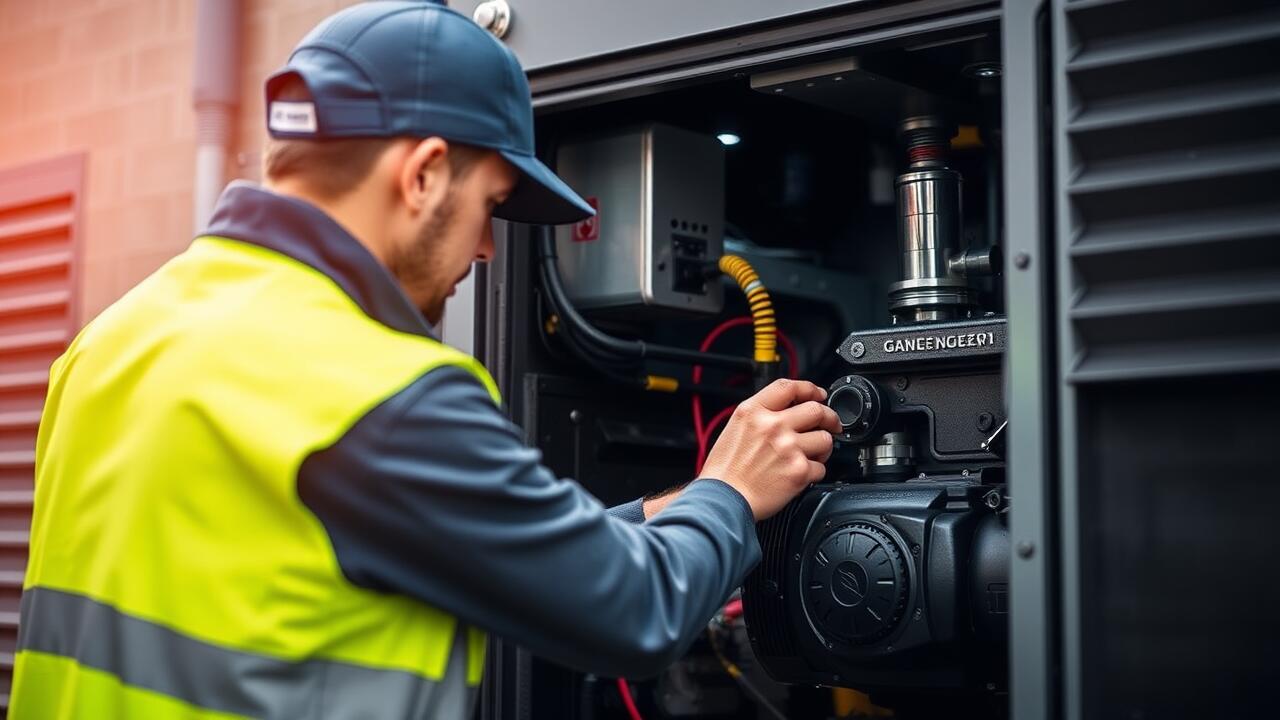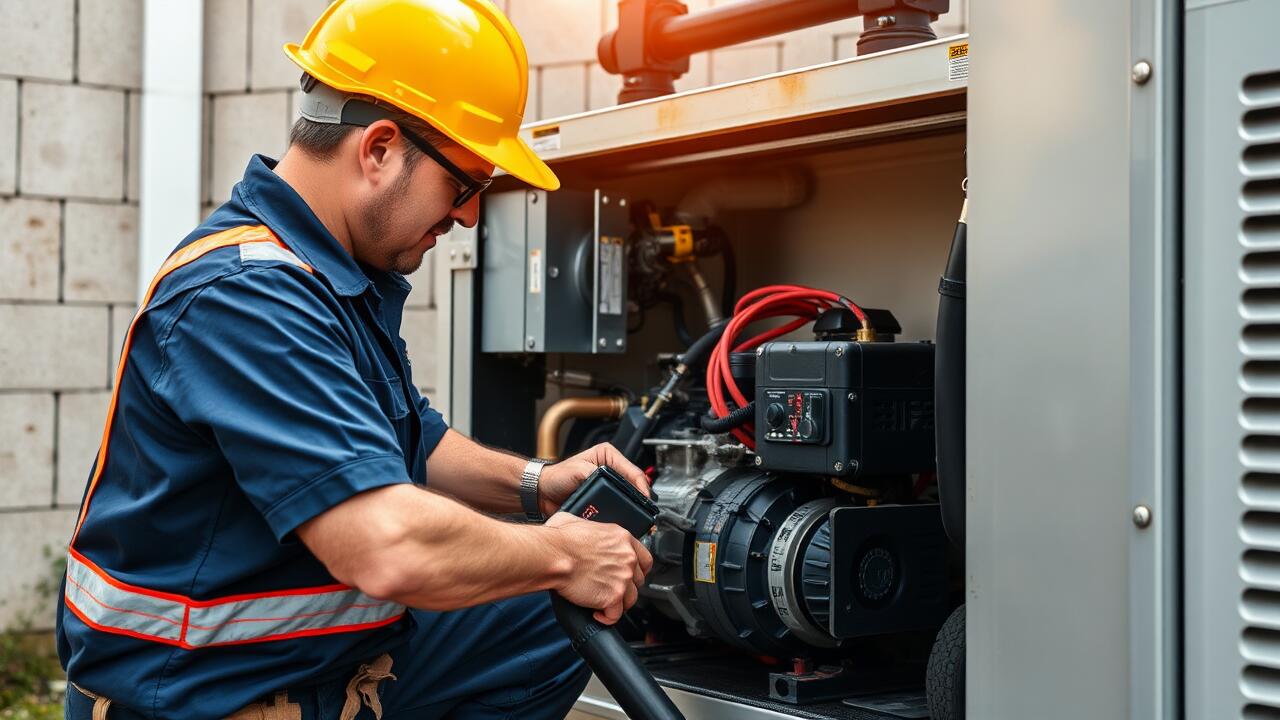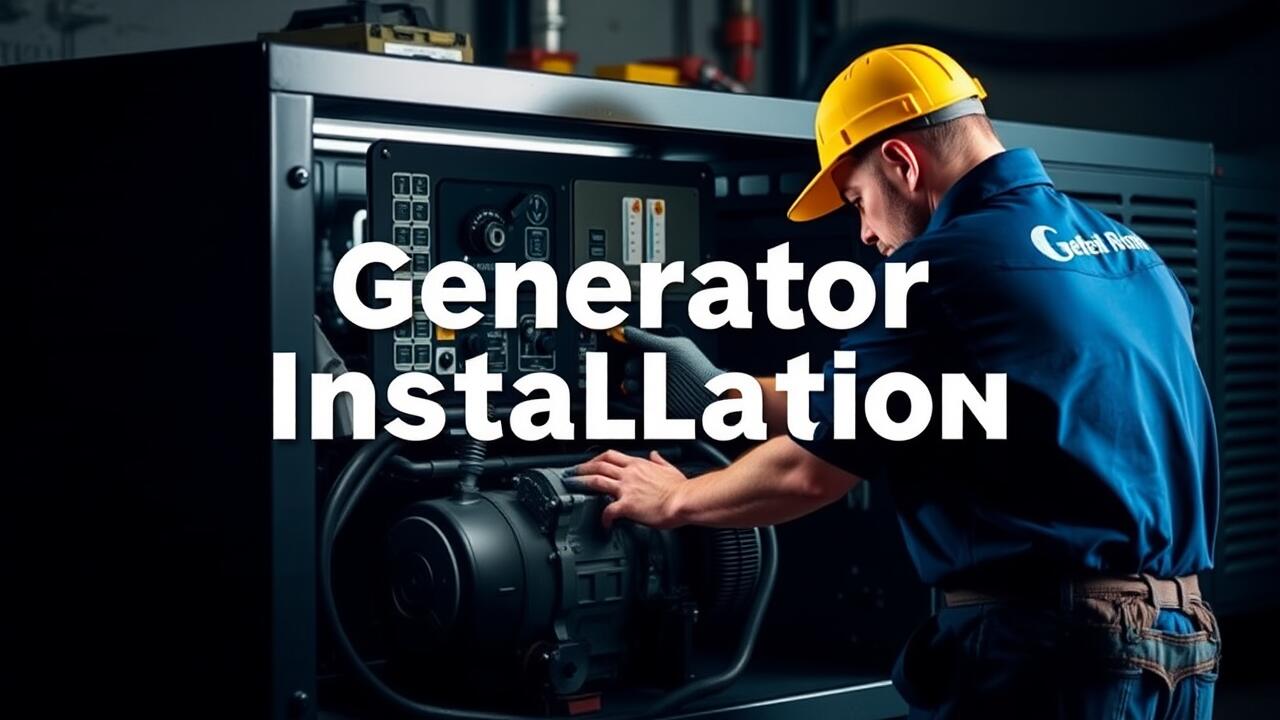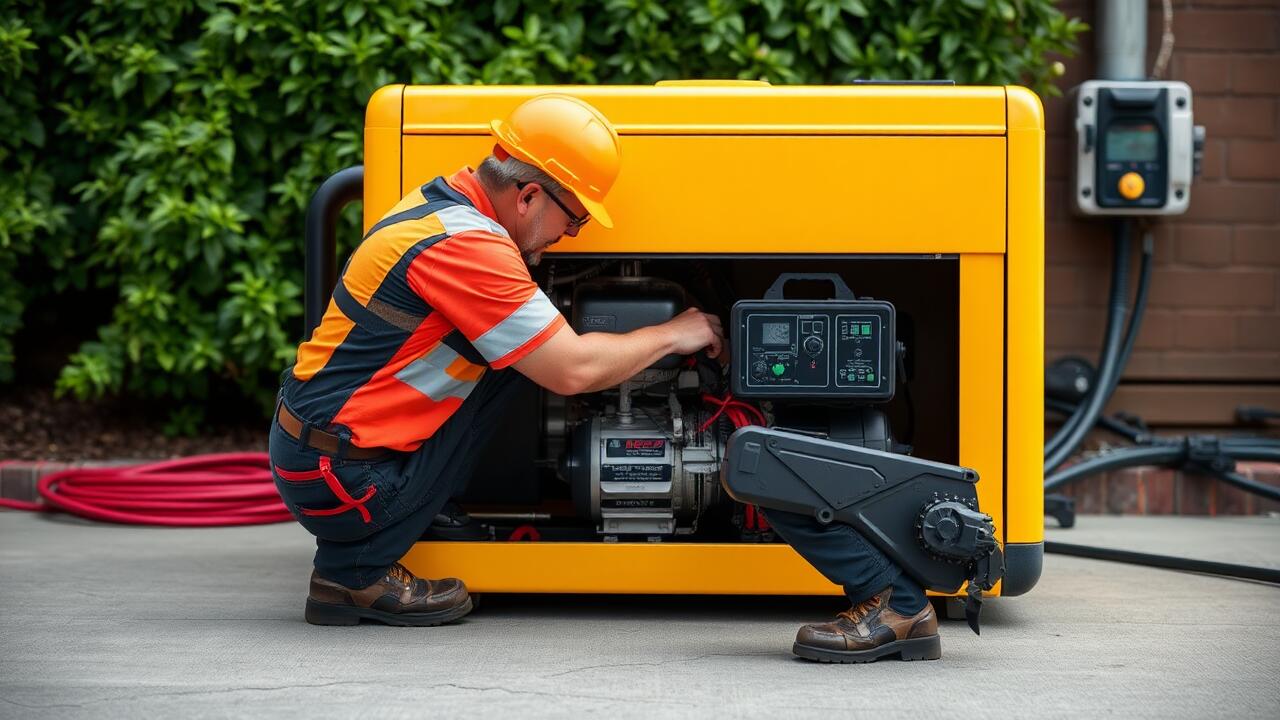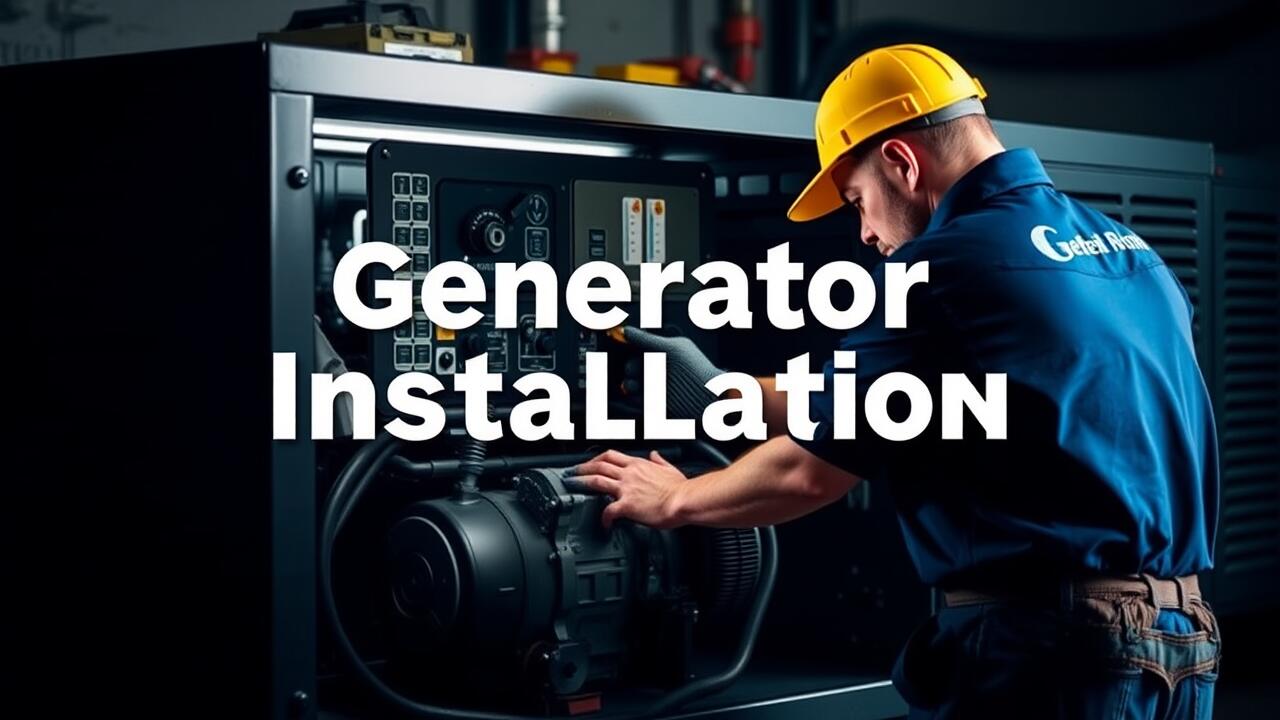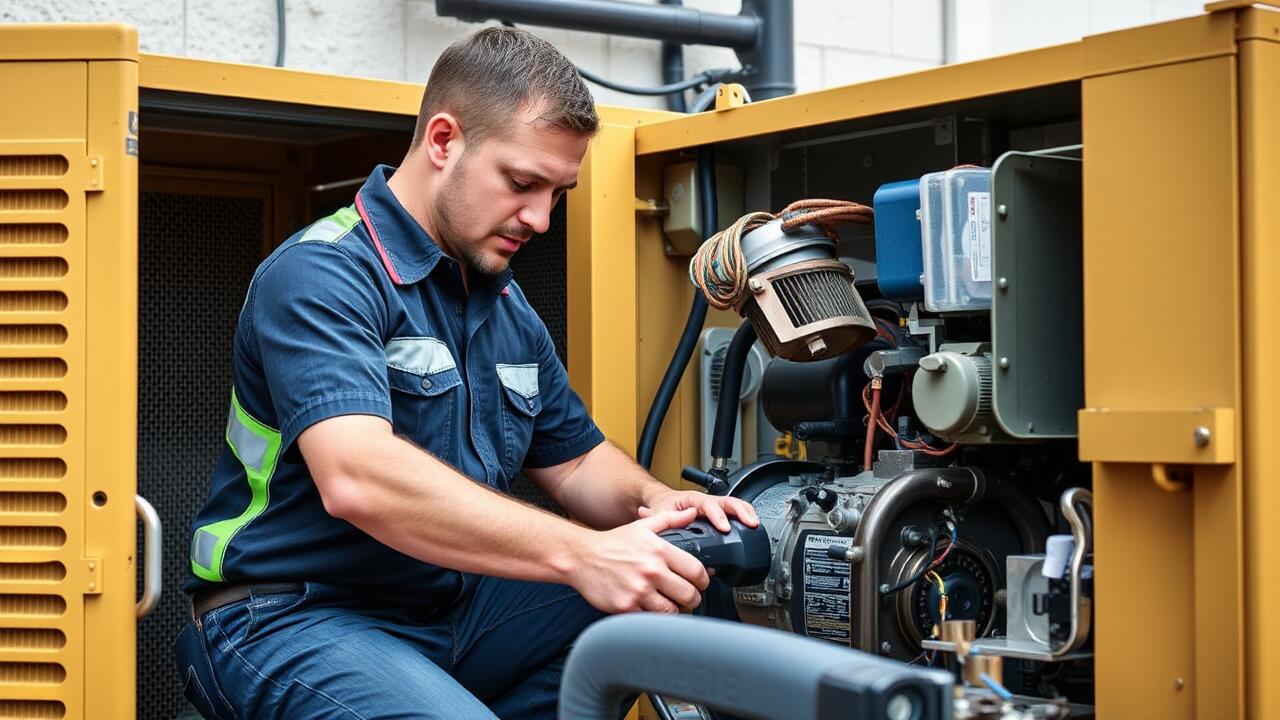
When to Hire a Licensed Electrician
Homeowners considering any major electrical work should assess whether they possess the necessary skills and knowledge. For tasks involving complex wiring, panel upgrades, or installations that impact the overall electrical system, enlisting a licensed electrician is essential. Compliance with local codes and regulations ensures safety and functionality. When it comes to specialized tasks, such as Generator Installation in Greater Heights, Houston, the expertise of a professional can provide reassurance and peace of mind.
Electrical work carries inherent risks, particularly if performed improperly. Signs that indicate a need for professional help include frequent circuit breaker trips, flickering lights, or burning smells from outlets. These issues may signal underlying problems that require expert diagnosis. When handling the installation of intricate systems or troubleshooting persistent electrical faults, relying on a licensed electrician can prevent costly mistakes and enhance the longevity of the electrical system.
Signs That Professional Help is Required
Homeowners should be vigilant about signs that indicate the need for professional help. Frequent circuit breaker trips or flickering lights often suggest underlying electrical issues that may require expert diagnosis and correction. Overheating outlets or the smell of burning wires are serious red flags that demand immediate attention from a licensed electrician. These signs can point to potential hazards, including fire risks.
For those considering generator installation in Greater Heights, Houston, the complexities involved may also necessitate expert assistance. Proper installation of generators involves understanding both electrical and fuel systems. Attempting to handle such tasks without sufficient knowledge can lead to dangerous errors. Ensuring that all safety measures and local codes are followed is crucial, making expert help a wise choice for many homeowners.
Tools Needed for DIY Electrical Projects
Undertaking electrical projects can feel empowering for many homeowners. However, having the right tools on hand is critical to ensure safety and efficiency. Basic tools such as a multimeter, wire cutters, and screwdrivers are essential for most electrical tasks. Additionally, gloves and safety glasses should be included in any DIY toolkit to protect against potential hazards. For more complex jobs like generator installation in Greater Heights, Houston, a homeowner may require specific tools like a power drill and extension cords.
Preparing for a DIY project requires careful consideration of both common and specialized tools. While the essentials cover many smaller tasks, certain projects may need more advanced equipment, such as a conduit bender or voltage tester. Homeowners should also familiarize themselves with local codes and regulations to ensure compliance while working on electrical systems. As these projects progress, adequate lighting can enhance visibility and make the job safer and more manageable.
Essential Tools for Homeowners
A homeowner embarking on DIY electrical work must be adequately equipped with the right tools. Essential items include wire strippers for removing insulation from wires, multimeters for measuring voltage and current, and pliers for gripping and twisting wires. A good-quality screwdriver set helps with various screw types commonly found in electrical installations. Investing in safety gear such as gloves and goggles is also critical to protecting oneself during any electrical project.
For specific projects such as Generator Installation in Greater Heights, Houston, additional tools may prove beneficial. A drill can be necessary for installing mounting brackets and securing components. Junction boxes will be needed for safely connecting wires. Having electrical tape on hand is important for insulating wire connections. Collecting these tools not only prepares a homeowner for the task at hand but also ensures a safer and more efficient work process.
Cost Considerations for DIY vs. Professional Electrical Work
When evaluating the costs associated with DIY electrical work versus hiring a professional, several factors come into play. Homeowners can save on labor costs by tackling simple projects themselves, but there are hidden expenses to consider. Tools and materials may require a significant upfront investment, especially for complex tasks that demand specialized equipment. Additionally, the risk of mistakes in wiring or installation can lead to costly repairs down the line.
Generator installation in Greater Heights, Houston, serves as an example of this balance between DIY and professional assistance. The initial cost of materials might be appealing to a homeowner looking to save money, but the expertise of a licensed electrician can ensure safety and compliance with local codes. Mistakes during such installations could not only void warranties but also lead to safety hazards, which can amplify costs significantly in the long run.
Comparing Expenses and Potential Savings
When considering whether to tackle electrical work as a DIY project or hire a professional, evaluating the costs is crucial. DIY projects can offer significant savings on labor, especially for tasks like installing outlets or updating fixtures. However, homeowners must also factor in the expense of tools and materials. For more complex installations, such as a Generator Installation in Houston, the upfront costs of purchasing equipment and safety gear may offset some of the savings.
On the other hand, professional services often come with a higher price tag but can provide peace of mind. Licensed electricians are equipped with the necessary skills and knowledge to complete jobs efficiently and safely. This can prevent costly mistakes that may arise from DIY attempts. Additionally, many companies offer warranties on their work, which can be a valuable consideration for homeowners looking to invest in long-term solutions.
FAQS
Can a homeowner legally do their own electrical work in Texas?
Yes, homeowners in Texas can perform their own electrical work, but they must adhere to local building codes and safety regulations.
What kind of electrical work can a homeowner do without a license in Texas?
Homeowners can perform minor electrical repairs, such as replacing switches or outlets, and certain DIY projects, provided they follow local guidelines.
When should a homeowner consider hiring a licensed electrician?
Homeowners should hire a licensed electrician for complex tasks, such as installing new circuits, working on the main electrical panel, or when they are unsure about the safety of their DIY project.
What are some signs that professional help is needed for electrical work?
Signs that indicate the need for professional help include frequent circuit breaker trips, flickering lights, burning smells, or visible damage to wiring.
What tools are essential for homeowners undertaking DIY electrical projects?
Essential tools include a voltage tester, wire strippers, pliers, a screwdriver set, and a drill. Safety gear such as gloves and goggles is also recommended.
